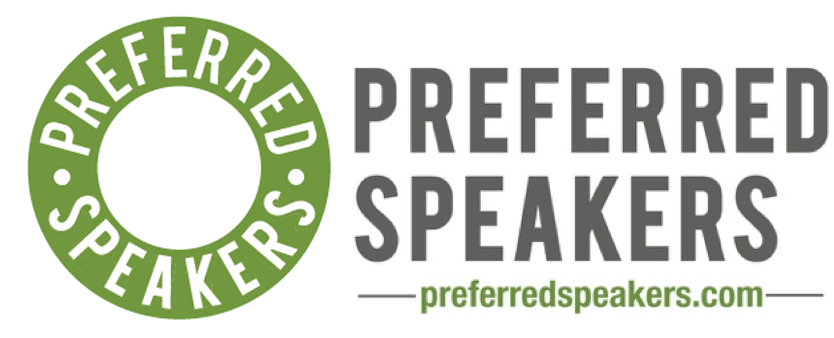We made it through the first month of this new year. Are you taking time…

10 Ways to Communicate Better in a Noisy World
Like anything, developing communication skills takes practice. Have you ever been in a conversation and said something you wish you hadn’t. Or not said anything, and a few days later had the perfect response? Do you struggle to cut through the clutter and chaos in this noisy world? You aren’t alone. Communication is challenging for many reasons. The ways in which we communicate are always changing. But also, the world is constantly changing. There are more distractions than ever… at work, at home, just about everywhere we go.
Preferred Speakers represents a plethora of Communication Experts so we compiled a list of 10 ways to help you communicate better in a noisy world.
Communicate Better
- Be present. Communication is about more than what you say and do. It’s about the context of the situation and being present in the moment so you can full absorb and assess what is going on.
- Don’t pontificate. We all have opinions and we often think our opinions are the right ones. As a result, we explain and explain again, instead of considering another perspective. It is important to set aside your personal opinions and be open to learning something new.
- Use open ended questions. Communication is about more than letting something else speak, but listening and making an effort to understand. This means asking questions. Start with with who, what, where, why and how.
- Go with the flow. It’s human nature to want to plan for the future, but sometimes, you just have to go with the flow. Allowing yourself time to gather more information and consider other opinions means being patient and letting the dust settle.
- If you don’t know, say you don’t know. No one likes to admit they are wrong or don’t have all the answers. But it is better to admit what you don’t know. To communicate better, you first must build trust and this involves an open and honest relationship.
- Don’t equate your experience with others. Our experiences and opinions are our own. While experiences provide a way to relate to others, it can be harmful to assume a similar or shared experience means we understand.
- Conversations are not a promotional opportunity. Perhaps you’ve heard the saying, “Always be selling.” When it comes to communication, no one wants to feel like they are always being sold to. Not every conversation is an opportunity to promote. Instead, share authentically and openly. Allow others to ask for more instead of always offering it up.
- Be clear and to the point. To communicate better, you must first communicate clearly. This means not repeating yourself over and over. Identify the point you are trying to make and why. It can be easy to get caught up in the details. Sharing too much information or details that are not relatable or understandable can cause your audience to loose interest.
- Listen. You’ve heard it before and I’m going to say it again. Listen. This is about so much more than hearing the words someone else is saying. Listening means to take in the information, process and allow time before responding. Listening demonstrates that you value what the other person has to say. You acknowledge they have an opinion of their own and seek to understand.
- Be brief. Communication is about quality over quantity. It’s not about how much you say, but the message you are trying to communicate. Get to the point quickly and include only the most important details.
Amp Up Your Communication Skills
Whether you are looking to improve your own communication skills in order to communicate better in today’s ever-changing world or impact the quality of communication in the workplace, we have a speaker for you. Consider Dr. Jermaine Davis, Kit Welchlin, Bruce Christopher and Stephanie Goetz. Contact us at info@preferredspeakers.com to learn more.



